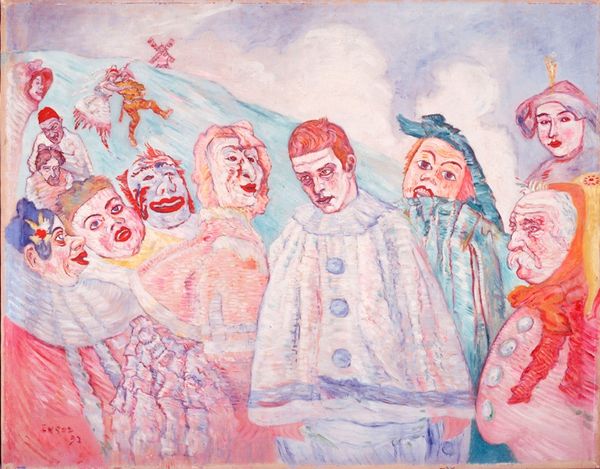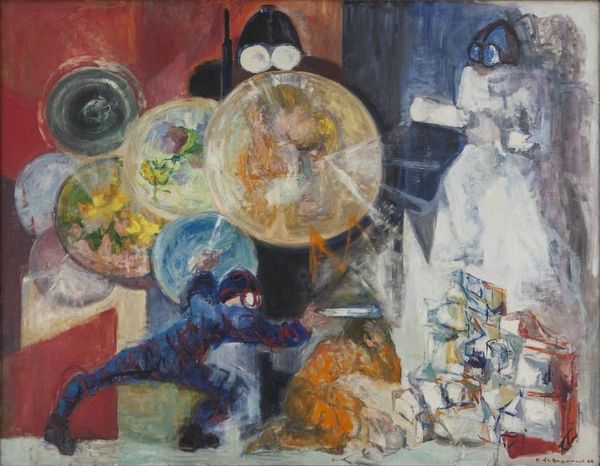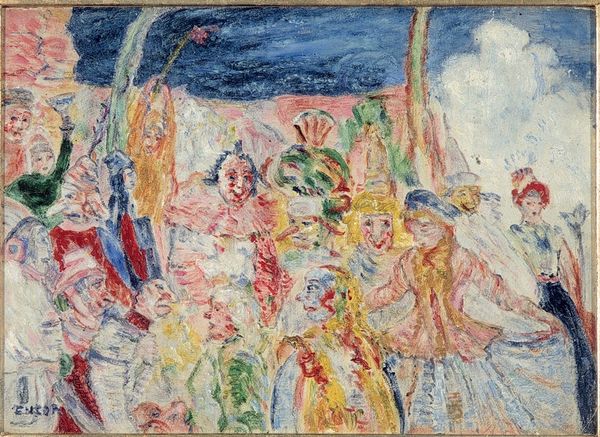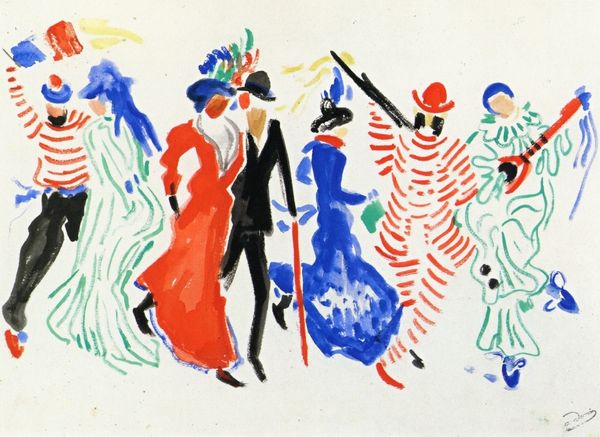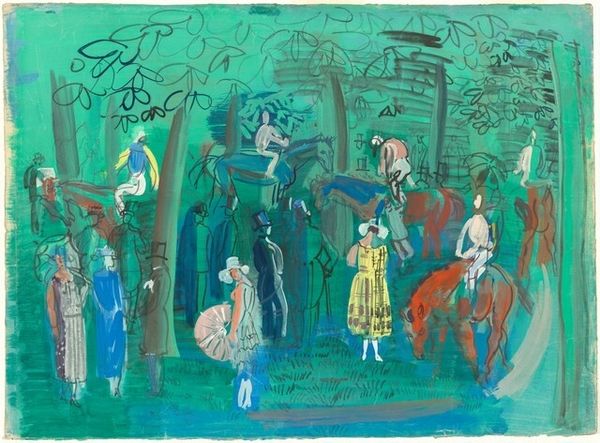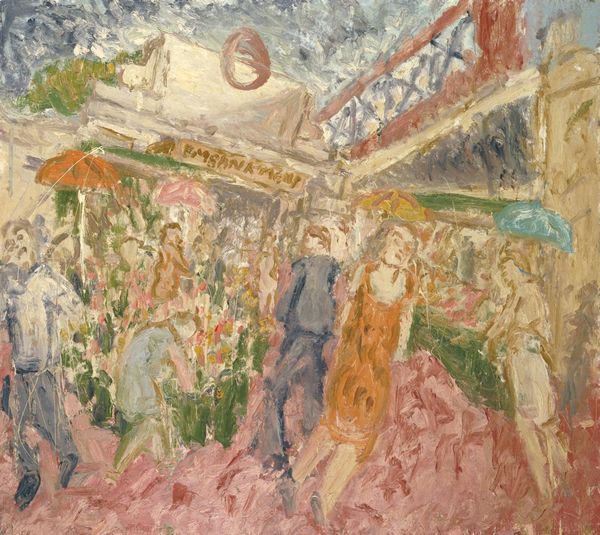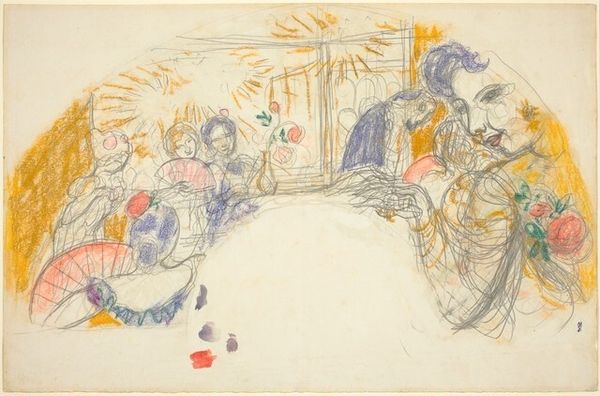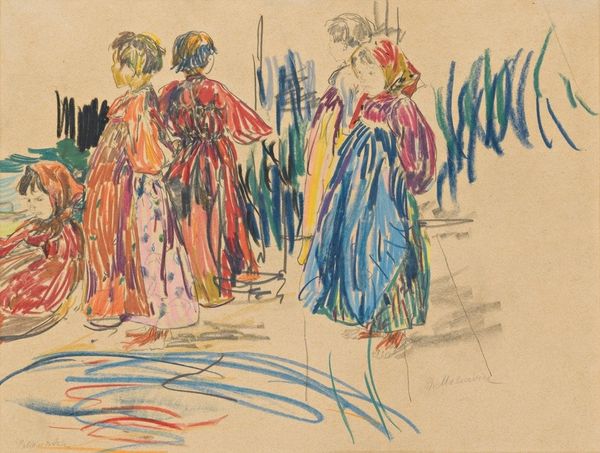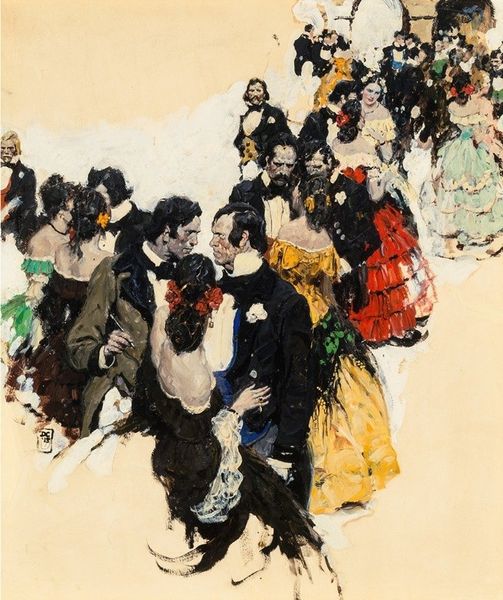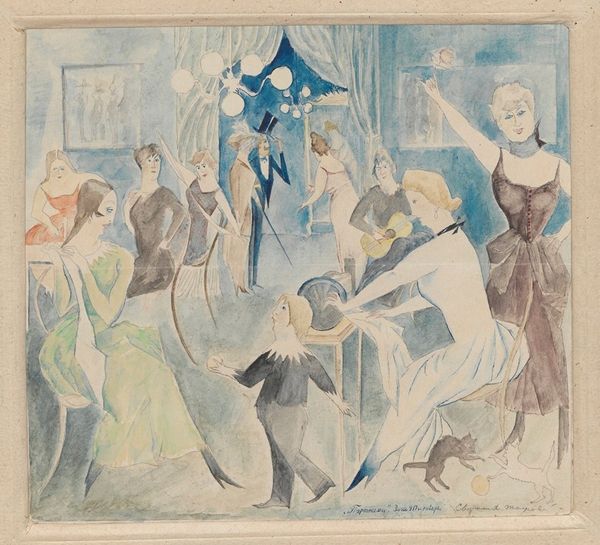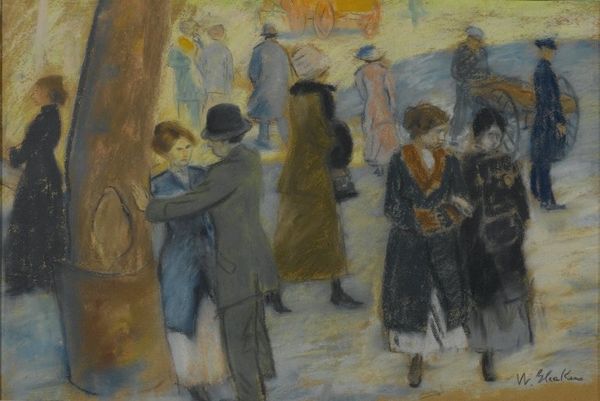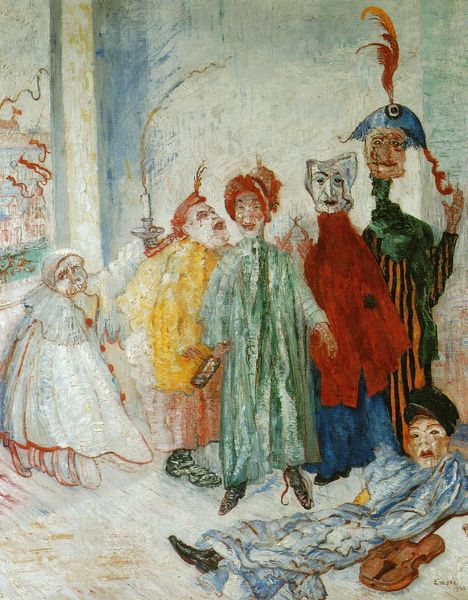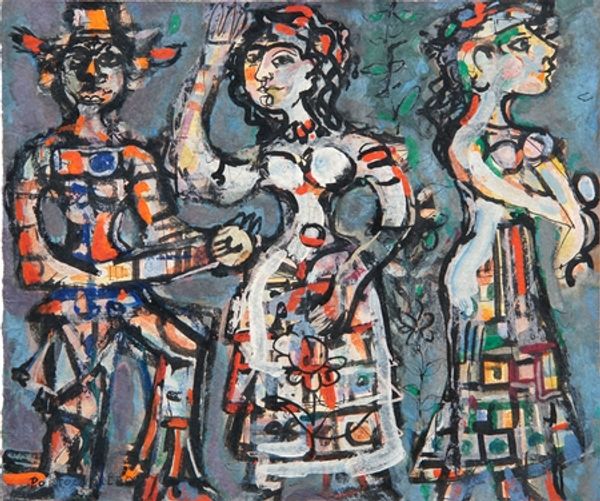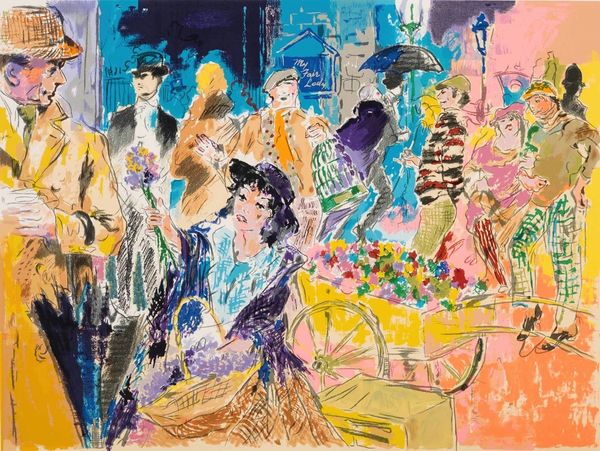
Copyright: Public domain
Editor: Here we have James Ensor's "Carnival in Flanders," an oil painting on canvas from 1931. The colours are almost translucent, but there's a clear sense of energy and maybe even chaos. What strikes me is the raw quality of the paint application. What are your initial thoughts? Curator: Looking at the materials and the process of creation, it's interesting how Ensor uses oil paint in such a seemingly hurried, almost impulsive way. This quick application style mirrors the frantic nature of a carnival. Do you think he's elevating what could be seen as ‘folk’ material - the spectacle of carnival - into the realm of high art, and what does this say about art world hierarchy at the time? Editor: That's interesting! The materials definitely speak to the performative and fleeting aspect of carnival. Perhaps the seemingly "unskilled" technique comments on the accessibility and every-day-ness of the subject matter? Are we to view the application of the paint as being as important as the overall depiction? Curator: Exactly. Consider how Ensor’s choice of using commercially available oil paint places the artwork within a specific economic and social context. How does that affect our viewing of this tableau? Does the "genre painting" elevate the everyday consumer or question art-making and it's "fine" elements? Editor: So, Ensor uses both his medium and technique to elevate the "every day". Carnival becomes this grand statement through material! The brushwork itself seems to emulate the frenetic energy. Curator: Right. He transforms the familiar spectacle of carnival into a deeper exploration of material processes. How does our understanding change when we emphasize the role of paint, canvas and even Ensor's labour within this image? It invites the viewer to look deeper than what initially meet the eye. Editor: That reframing completely changes my perspective, placing importance not only on subject but production, forcing me to consider art and "craft" in the socio-economic. Thanks for sharing such unique views!
Comments
No comments
Be the first to comment and join the conversation on the ultimate creative platform.
